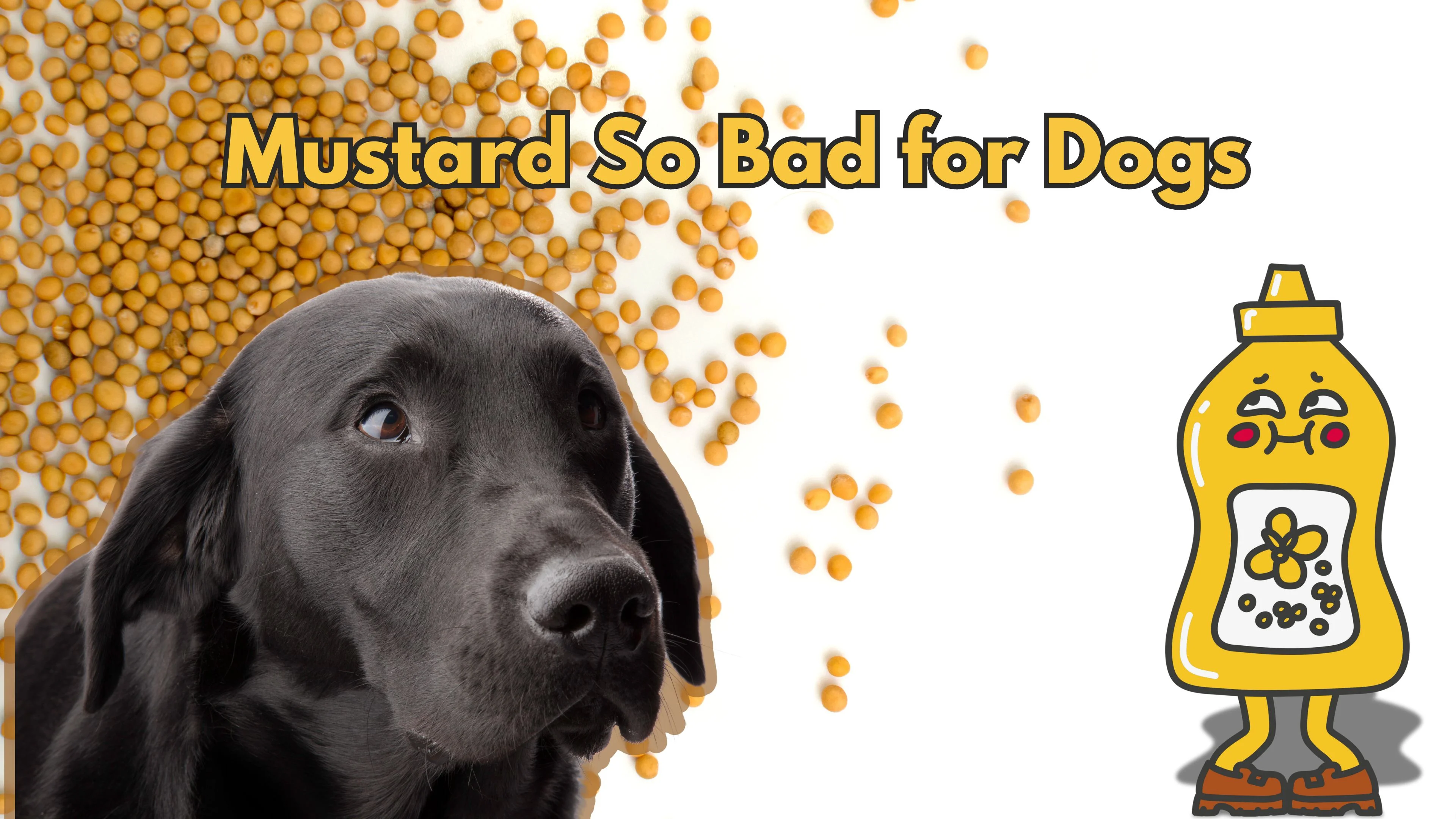Can Dogs Eat Mustard?
Mustard is highly toxic for dogs due to the presence of mustard seeds, which contain harmful compounds like isothiocyanates. These compounds can cause inflammation in the stomach and intestinal tract, leading to conditions such as gastroenteritis. Can Dogs Eat Mustard? All types of mustard should be avoided, including yellow mustard, Dijon, honey mustard, and even homemade mustard. While a small lick off your plate may not cause immediate harm, larger amounts can result in more severe symptoms such as vomiting, diarrhea, and stomach pain, which could require veterinary attention.
Though mustard greens may be safe for dogs in certain preparations, mustard seeds themselves are the primary concern. Additionally, some store-bought mustard brands contain harmful additives like xylitol and excessive sugar, both of which are dangerous for dogs. If your dog consumes a significant amount of mustard, symptoms like gas, illness, and dehydration may occur.
It’s important to monitor their condition and contact a veterinarian if symptoms persist. Ultimately, keeping mustard and mustard-based foods out of your dog’s reach is the best way to prevent any health risks. While the chance of a dog consuming raw mustard seeds or large quantities of mustard is relatively low, the potential risks are still significant. Dogs are naturally curious and may eat harmful substances when left unattended. Taking simple precautions, such as storing mustard out of reach, can help prevent your pet from ingesting this toxic condiment.

Why is Mustard So Bad for Dogs?
Mustard is dangerous for dogs primarily due to the toxic compounds found in mustard seeds. These seeds contain glycosylates, which can cause gastroenteritis, a painful inflammation of the stomach or intestinal tract. Common symptoms dogs experience after consuming mustard include vomiting, diarrhea,
and abdominal pain. While a small amount might not cause severe harm, ingesting a significant quantity can lead to serious health issues.
In addition to the toxins in mustard seeds, store-bought mustard often contains additional harmful ingredients. These additives may exacerbate the risks to your dog’s health. The presence of isothiocyanates and goitrogens in mustard seeds also poses a threat, with the latter potentially disrupting healthy thyroid function. It’s crucial to avoid giving mustard to dogs, and if they do consume it, monitoring for symptoms and consulting a vet if necessary is important.

What Should I Do If My Dog Eats Mustard?
Mustard is dangerous for dogs due to the toxic compounds found in mustard seeds, particularly glycosylates. These compounds can lead to gastroenteritis, causing inflammation of the stomach and intestines. Symptoms of mustard poisoning often include vomiting, diarrhea, and abdominal pain. Store-bought mustard can pose an even greater risk as it may contain additional harmful ingredients like salt and other seasonings, further aggravating the dog’s health. While a small lick might not cause immediate harm, consuming larger amounts can lead to more serious health issues.
The severity of the reaction depends on factors such as the dog’s size, pre-existing health conditions, and the quantity of mustard consumed. For instance, a medium-sized, healthy dog might not be significantly affected by a tiny amount, but ingesting a larger quantity, such as from a spilled bottle, could lead to more severe symptoms. Dogs with gastrointestinal or liver issues may be more vulnerable to mustard’s toxic effects. If your dog eats mustard, it’s essential to closely monitor them for 24 hours and consult a veterinarian if any concerning symptoms arise. Storing mustard properly and avoiding feeding it to dogs altogether is the best course of action.
Finally, mustard offers no significant nutritional value to dogs, so it’s not worth the risk of feeding it to them. Instead, pet owners should explore safer human foods that dogs can enjoy without compromising their health







